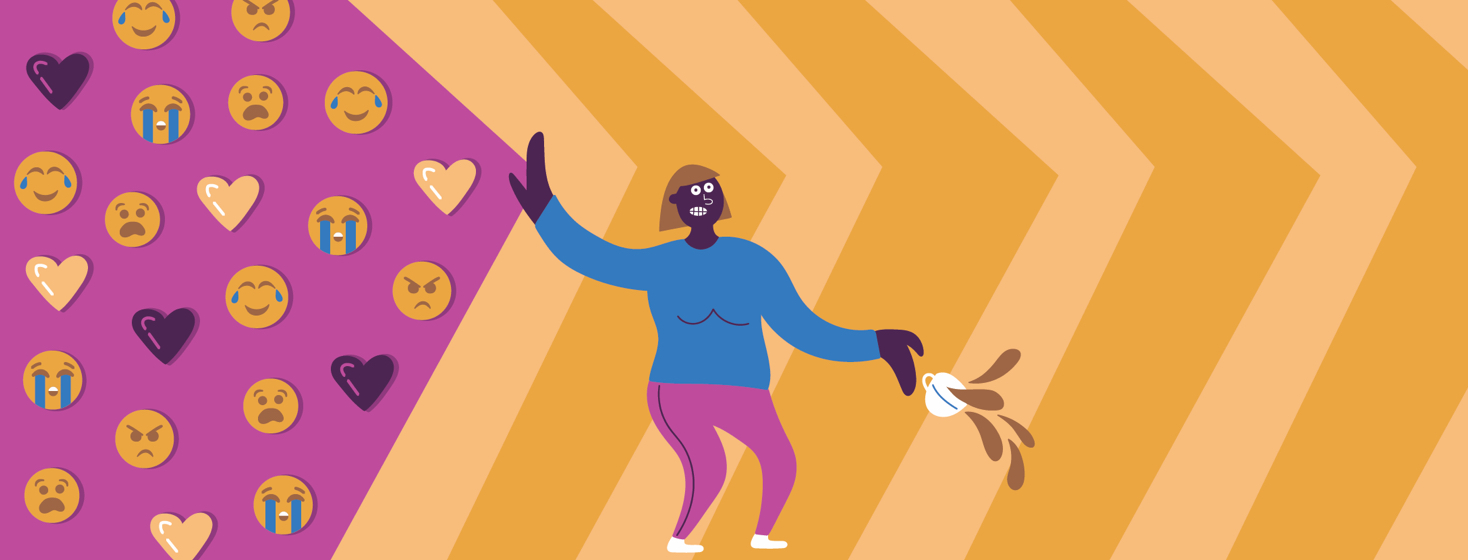Cataplexy and the Privilege of Emotions
Cataplexy is potentially the symptom I resent most. And in my opinion, one of the most underrated symptoms of narcolepsy.
Many people associate cataplexy with epilepsy, and as understandable as this is, it is a lapse that must be corrected.
What is cataplexy?
The technical definition describes cataplexy as:1
A sudden loss of muscle tone, usually triggered by emotions such as laughter, surprise, fear, or anger. Cataplexy occurs while the person is awake and causes feelings of weakness and a loss of voluntary muscle control. Cataplexy may occur more often during times of stress or fatigue. Attacks can involve only a slight feeling of weakness in one part of the body (i.e., sagging facial muscles, nodding head, buckling knees, garbled speech, etc.) or an immediate and total full body collapse. Although someone suffering a severe cataplexy attack may appear unconscious, they are actually awake and alert. Attacks can last from a few seconds up to several minutes.
This definition, however, fails to encapsulate the daily assaults of cataplexy.
What the outside world doesn't see
They are exasperating moments of affliction that are, many times, undetectable to the outside world.
There is a loss of freedom that comes with having cataplexy and, in many cases, the development of an association between emotions and fear.
Sensations of joy, anger, sadness, frustration, or fear course throughout your entire body day in and day out, with a flow that is so natural it’s rarely acknowledged.
To freely feel emotions is a privilege
People unaffected by cataplexy take this for granted, possessing absolutely no awareness of the privilege they possess. Yes, privilege. To feel unencumbered emotion is a privilege, regardless of whether it's associated with being a positive or even negative emotion.
I wish that the feeling of anger didn’t weaken my knees and threaten to make me collapse on the floor. I would be so thankful if I never again caused myself second-degree burns because whilst holding a scalding cup of tea, my hand unwillingly decided to slacken abruptly.
I wish I didn’t have to feel the embarrassment of breaking another one of my friend’s expensive champagne glasses because the mundane act of laughing drove me to lose control of my grip.
Cataplexy's far-reaching impact
In addition to these factors, there are additional factors that most are unaware of. Besides the damaging effects on personal relationships, limitations on the quality of life, the mere act of repressing one’s emotions can have consequences related to emotional dysregulation, impulsiveness, and depressive mood.2
The impact cataplexy has in someone’s life is tremendous and many times leads us to avoid any type of strong emotion, which consequently can mean situations and even people in our lives that have the potential to elicit these emotions.
Life without limits...someday
It can also limit many daily activities such as driving, cooking, handling sharp objects as these can lead to accidents, head injuries, or other types of injuries.
Of course, every single person with narcolepsy type 1 (with cataplexy) has various levels of this symptom, and people that live with narcolepsy type 2 (without cataplexy) won’t ever feel its effects.
More research into both types is necessary in order to enhance people’s quality of life so that they may finally have a healthy relationship with emotions and experience life to its fullest.

Join the conversation